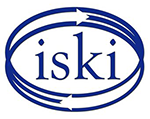Dialogic Engagement and Institutional Trust: A Netnographic Study of @halal.indonesia on Instagram as a Government Communication Platform
DOI:
https://doi.org/10.12928/channel.v13i1.956Keywords:
Netnography, Government communication, Halal certification, Public sector social media, Instagram engagementAbstract
This study explores how the Halal Product Guarantee Agency (BPJPH) utilizes selective engagement strategies on its official Instagram account, @halal.indonesia, to map public interest and prioritize communication. As Indonesia holds the world's largest Muslim population and serves as a global halal market leader, strategic public communication around halal certification is critical. Employing a qualitative netnographic method, this research analyzes 1,502 Instagram posts and 27,943 associated comments published between May 2019 and February 2024. The analysis reveals that while all posts received engagement, dialogic interaction occurred in only 2.68% of comments, and administrative responses were identified in just 319 comment threads—42.78% of dialogic interactions and only 0.21 per upload on average. Administrator responses were concentrated around posts offering public service information, halal certification processes, and policy outreach. These findings suggest that BPJPH practices intentional and selective responsiveness, favoring comments that reflect high public interest or information-seeking behavior, while disregarding vague, low-quality, or off-topic content. The study underscores the significance of strategic two-way communication in cultivating institutional trust, transparency, and participatory governance in digital spaces. It contributes to the discussion on social media governance, interest mapping, and digital public engagement, offering practical implications for communication strategies across public sector institutions.
References
Amali, M. T., & Pudrianisa, S. L. G. (2024). The Impact of Social Media Exposure and Peer Group Towards Gen Z Decision To Visit Pasar Kangen Yogyakarta. Komunikatif: Jurnal Ilmiah Komunikasi, 13(2), 153–164. https://doi.org/10.33508/jk.v13i2.5634
Annur, C. M. (2023a). 10 Negara dengan Populasi Muslim Terbanyak Dunia 2023, Indonesia Memimpin! Katadata. Retrieved from https://databoks.katadata.co.id/demografi/statistik/66cd942e80518/10-negara-dengan-populasi-muslim-terbanyak-dunia-2023-indonesia-memimpin
Annur, C. M. (2023b). Jumlah Populasi Muslim di Kawasan ASEAN (2022). Katadata. Retrieved from https://databoks.katadata.co.id/demografi/statistik/700c504ada0c047/ini-jumlah-populasi-muslim-di-kawasan-asean-indonesia-terbanyak
Annur, C. M. (2023c). Indonesia Masuk 5 Besar Negara dengan Pengguna Instagram Terbanyak di Dunia. Katadata. Retrieved from https://databoks.katadata.co.id/media/statistik/e775c90d0a853ab/indonesia-masuk-5-besar-negara-dengan-pengguna-instagram-terbanyak-di-dunia
Bastos, P. N., Oliviera, T., Grohmann R. (2021). What is engagement in communication research? Circulation of meanings and consequences for audience studies. Participations Journal of Audience & Reception Studies, 18(1), 206-229. https://www.participations.org/18-01-12-bastos.pdf
Bossio, D., McCosker, A., Milne, E., Golding, D., & Albarrán-Torres, C. (2020). Social media managers as intermediaries: negotiating the personal and professional in organisational communication. Communication Research and Practice, 6(2), 95–110. https://doi.org/10.1080/22041451.2019.1648028
BPJPH. (2023). Melampaui Target, 2,9 Juta Produk Sudah Bersertifikat Halal. Retrieved from https://bpjph.halal.go.id/detail/lampau-target-2-9-juta-produk-sudah-bersertifikat-halal
BPJPH. (2024). Tentang BPJPH. Retrieved from https://bpjph.halal.go.id/detail/tentang-bpjph
Bungin, B. (2023). Netnography: Social Media Research Procedure, Big Data & Cybercommunity. Jakarta: Kencana.
Chowdhary, S., Andres, E., Manna, A., Blagojević, L., Di Gaetano, L., & Iñiguez, G. (2023). Temporal patterns of reciprocity in communication networks. EPJ Data Science, 12(1), 7. https://doi.org/10.1140/epjds/s13688-023-00382-w
Daemi, A., Chugh, R., & Kanagarajoo, M. V. (2021). Social media in project management: A systematic narrative literature review. International Journal of Information Systems and Project Management, 8(4), 5–21. https://doi.org/10.12821/ijispm080401
Deslia, I. F., Amali, M. T., & Ulfah, M. (2022). The New Face of Malioboro Street Vendors: an Analysis of Instagram @terasmalioboro_2 as a Marketing Communication Medium. Proceedings Of International Conference On Communication Science, 2(1), 383–392. https://doi.org/10.29303/iccsproceeding.v2i1.56
Desmal, A. J., Alsaeed, M., Hamid, S., & Zulait, A. H. (2023). Leveraging Social Media in Mobile Government: Enhancing Citizen Engagement and Service Delivery. 2023 IEEE 8th International Conference on Engineering Technologies and Applied Sciences (ICETAS), 1–6. https://doi.org/10.1109/ICETAS59148.2023.10346362
Dutta, A., & Sharma, A. (2023). Netnography and instagram community: An empirical study. Business Information Review, 40(1), 33–37. https://doi.org/10.1177/02663821231157501
Eriyanto. (2021). Metode Netnografi: Pendekatan Kualitatif dalam Memahami Budaya Pengguna Media Sosial. Bandung: Remaja Rosdakarya.
Ernungtyas, N. F., & Boer, R. F. (2023). The Citizen Trust and Engagement in Indonesia Government’s Social Media and Website. Mediator: Jurnal Komunikasi, 16(1). https://doi.org/10.29313/mediator.v16i1.2159
Febrian, A., Bangsawan, S., Ms, M., & Ahadiat, A. Y. I. (2021). Digital Content Marketing Strategy in Increasing Customer Engagement in Covid-19 Situation. International Journal of Pharmaceutical Research, 13(01), 4797–4805. https://doi.org/10.31838/ijpr/2021.13.01.684
Febrilyantri, C. (2022). The Influence of Halal Knowledge and Labeling on Food Product Purchase Decisions. Invest Journal of Sharia & Economic Law, 2(2), 106–125. https://doi.org/10.21154/invest.v2i2.3946
Gunawan, A. I., Monoarfa, H., Hendrayati, H., Bahri, K. N., Rahayu, A., & Huda, M. (2023). Social Media User Perception on Communication Types: Comparing One-Two Way of Communicating Brand. Journal of Marketing Innovation (JMI), 3(1). https://doi.org/10.35313/jmi.v3i1.59
Gusthini, M., & Istiningdias, D. S. (2024). DKI Jakarta’s Regional Government Speech Act Analysis and Public Response to Air Pollution Issue on Instagram Platform. Journal of Pragmatics and Discourse Research, 4(1), 1–10. https://doi.org/10.51817/jpdr.v4i1.696
Hanevie, K. A. & Kusnarto. (2023). PR tiket.com Communication Crisis in Responding to Comments by Users on Instagram @Tiketcom During The Covid-19 Pandemic. JOSAR (Journal of Students Academic Research), 8(1), 19–29. https://doi.org/10.35457/josar.v9i1.2443
Heywood, E. & Yaméogo, L (2023). Radio and Social Media as A Two-Way Communication Tool in Conflict- and Pandemic-Affected Communities in Burkina Faso. African Journalism Studies, 2022, 43 (4), 44–61. https://doi.org/10.1080/23743670.2023.2204447
Hidayat, F. P., Zulfahmi, Z., & Nasution, R. (2024). Exploring the Impact of Social Media on Narcissistic Behavior Among Students in Medan City. CHANNEL: Jurnal Komunikasi, 12(1), 48-55. https://doi.org/10.12928/channel.v12i1.480
Hidayat, S. E., & Musari, K. (2023). Comparative Analysis of Digitally-Enabled Community in Supporting the Halal Industry in Muslim Majority Countries in the ASEAN, Central Asia, and Maghreb Region (pp. 151–165). https://doi.org/10.1007/978-981-99-5146-8_11
Hoff, K. A., Song, Q. C., Einarsdóttir, S., Briley, D. A., & Rounds, J. (2020). Developmental structure of personality and interests: A four-wave, 8-year longitudinal study. Journal of Personality and Social Psychology, 118(5), 1044–1064. https://doi.org/10.1037/pspp0000228
Javornik, A., Filieri, R., & Gumann, R. (2020). “Don’t Forget that Others Are Watching, Too!” The Effect of Conversational Human Voice and Reply Length on Observers’ Perceptions of Complaint Handling in Social Media. Journal of Interactive Marketing, 50(1), 100–119. https://doi.org/10.1016/j.intmar.2020.02.002
Karavaeva, Y. V., & Litvinova, S. V. (2022). The main issues of interest research. Социодинамика, 3, 75–86. https://doi.org/10.25136/2409-7144.2022.3.36661
Kaufmann, H. R., & Manarioti, A. (2021). Consumer Engagement in Social Media Platforms. In Research Anthology on Strategies for Using Social Media as a Service and Tool in Business (pp. 480–501). IGI Global. https://doi.org/10.4018/978-1-7998-9020-1.ch025
Kozinets, R. V., & Seraj-Aksit, M. (2024). Everyday activism: an AI-assisted netnography of a digital consumer movement. Journal of Marketing Management, 40(3–4), 347–370. https://doi.org/10.1080/0267257X.2024.2307387
Lai, C.-H., Ping Yu, R., & Chen, Y.-C. (2020). Examining Government Dialogic Orientation in Social Media Strategies, Outcomes, and Perceived Effectiveness:A Mixed-Methods Approach. International Journal of Strategic Communication, 14(3), 139–159. https://doi.org/10.1080/1553118X.2020.1749634
Lestari, N. P. S. G., Adiwijaya, P. A., & Wedayanthi, L. M. D. (2024). The Analysis of the Usage of Emojis on Instagram Account @Englishwithlucy. Pragmatica: Journal of Linguistics and Literature, 2(1), 28–37. https://journal.tirtapustaka.com/index.php/pragmatica
Lin, Y., & Kant, S. (2021). Using Social Media for Citizen Participation: Contexts, Empowerment, and Inclusion. Sustainability, 13(12), 6635. https://doi.org/10.3390/su13126635
Martin, C., & MacDonald, B. H. (2020). Using interpersonal communication strategies to encourage science conversations on social media. PLOS ONE, 15(11), e0241972. https://doi.org/10.1371/journal.pone.0241972
Neill, M. S., & Moody, M. (2015). Who is responsible for what? Examining strategic roles in social media management. Public Relations Review, 41(1), 109–118. https://doi.org/10.1016/j.pubrev.2014.10.014
Oltra, I., Camarero, C., & San José Cabezudo, R. (2022). Inspire me, please! The effect of calls to action and visual executions on customer inspiration in Instagram communications. International Journal of Advertising, 41(7), 1209–1234. https://doi.org/10.1080/02650487.2021.2014702
Pahlevi. R. (2022a). 5 Negara Konsumen Makanan dan Minuman Halal Terbesar di Dunia (2020). Katadata. Retrieved from https://databoks.katadata.co.id/produk-konsumen/statistik/86e41673f6d56ae/indonesia-jadi-konsumen-makanan-minuman-halal-terbesar-di-dunia
Pahlevi. R. (2022b). 5 Negara Konsumen Kosmetik Halal Terbesar di Dunia (2020). Retrieved from https://databoks.katadata.co.id/produk-konsumen/statistik/972d579b36e6f07/konsumsi-kosmetik-halal-indonesia-terbesar-ke-2-di-dunia
Pratama, B. I. (2017). Etnografi Dunia Maya Internet. Malang: UB Press.
Ria, R. R. P. (2023). Motivation for Saving in Mutual Funds: Netnography Study on Bibit Instagram Posts. International Journal of Business, Law, and Education, 4(2), 462–471. https://doi.org/10.56442/ijble.v4i2.194
Rijal, S. (2023). The Importance of Community Involvement in Public Management Planning and Decision-Making Processes. Journal of Contemporary Administration and Management (ADMAN), 1(2), 84–92. https://doi.org/10.61100/adman.v1i2.27
Rosário, A. T., & Dias, J. C. (2023). Marketing Strategies on Social Media Platforms. International Journal of E-Business Research, 19(1), 1–25. https://doi.org/10.4018/IJEBR.316969
Sari, E. A., Setiawan, R. A. D., & Jandevi, U. (2023). Social Media in Electoral Communication: A Case Study of Strategic Initiatives by Bantul Election Commission for the 2024 Elections. CHANNEL: Jurnal Komunikasi, 11(2), 137–143. https://doi.org/10.12928/channel.v11i2.377
Siyam, N., Alqaryouti, O., & Abdallah, S. (2020). Mining government tweets to identify and predict citizens engagement. Technology in Society, 60, 101211. https://doi.org/10.1016/j.techsoc.2019.101211
Su, R. (2020). The three faces of interests: An integrative review of interest research in vocational, organizational, and educational psychology. Journal of Vocational Behavior, 116, 103240. https://doi.org/10.1016/j.jvb.2018.10.016
Triantafillidou, A., & Yannas, P. (2020). Social media crisis communication in racially charged crises: Exploring the effects of social media and image restoration strategies. Computers in Human Behavior, 106, 106269. https://doi.org/10.1016/j.chb.2020.106269
Triyono, A. (2021). Metode Penelitian Komunikasi Kualitatif. Yogyakarta: Bintang Pustaka Madani
Wijayanti, A., Narsa, I. M., & Hamidah. (2023). Instagram and Its Role as a Social Enterprise Transparency Media in Indonesia. ASSETS: Jurnal Akuntansi Dan Pendidikan, 12(2), 129–144. https://doi.org/10.25273/jap.v12i2.17511
Windy, Amri, Y. K., & Putri, D. M. (2023). Analysis of Locutionary Speech Acts in the Comment Column of Olshop Accounts on Instagram. Matondang Journal, 2(1), 47–58. https://doi.org/10.33258/matondang.v2i1.826
Yusnita, M. (2021). Relationship between Social Media Exposure and Adolescents’ Knowledge, Attitude and Behaviour to HIV/AIDS Prevention. Jurnal Komunikasi Indonesia, X(1), 42–53. https://doi.org/10.7454/jkmi.v10i1.1019
Zhang, L., Jiang, L., Washington, N., Liu, A. A., Shao, J., Fourney, A., Morris, M. R., & Findlater, L. (2021). Social Media through Voice. Proceedings of the ACM on Human-Computer Interaction, 5(CSCW1), 1–21. https://doi.org/10.1145/3449235
Zulvianti, N., Aimon, H., & Abror, A. (2022). The Influence of Environmental and Non-Environmental Factors on Tourist Satisfaction in Halal Tourism Destinations in West Sumatra, Indonesia. Sustainability (Switzerland), 14(15). https://doi.org/10.3390/su14159185
Халиков, А. (2020). Psychology Of Interest In Social And Legal Relations. The Rule-of-Law State: Theory and Practice, 16(3), 15–22. https://doi.org/10.33184/pravgos-2020.3.2
Downloads
Published
How to Cite
Issue
Section
License
Copyright (c) 2025 CHANNEL: Jurnal Komunikasi

This work is licensed under a Creative Commons Attribution-ShareAlike 4.0 International License.






